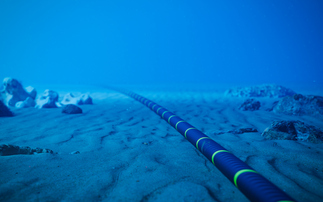The investment signals are clear, this historic Paris Agreement has real force, for once the hyperbole seems justified
It is fitting that it was Paris that last night was the site for what President Hollande called the start of "the most beautiful and most peaceful revolution". After all, it was France that provided the location for one history's great unpeaceful revolutions. That was a revolution which turned into the subject of one of the most astute historical jokes. The story may be apocryphal, but asked whether he thought the French Revolution of 1789 was a success, 20th century Chinese leader Zhou Enlai is said to have replied "it's too early to tell".
The same is true of the Paris Agreement and its commitment to a low carbon and sustainable future. We won't have to wait a few centuries to judge its success, but we may have to wait a few decades. We can comfortably declare the past two weeks an unalloyed triumph for French diplomacy (Nobel Prize winner Laurent Fabius sounds about right, doesn't it?), but the ultimate gauge of success - the meeting of the Agreement's 1.5C temperature goal, the creation of a net zero emission economy this century - will take some time to be measured. As Barack Obama observed yesterday, "we may not live to see the full realization of our achievement - but that's okay".
In the shorter term, the measure of success for the Agreement is whether it mobilises the investment, technology deployment, and new business models that are key to delivering on the longer term temperature and emissions goals. Again, we will have to wait some time to assess the true level of success, but there are good reasons to believe the superlatives greeting the Paris Agreement - "historic", "momentous", "unprecedented", "historic" again - will be vindicated.
The response from multinational CEOs, investment groups, political leaders and green NGOs was united in identifying the Paris Agreement as the long term signal that will, in the words of John Kerry, "unleash" business innovation and investment. It is a signal that indicates the fossil fuel era is entering its twilight years and the already accelerating wave of clean tech innovation will prove unstoppable.
The nature of that signal, provided by both the overall shape of the agreement and many of the specific clauses, is compelling.
In terms of specifics there is explicit recognition of the critical role of the private sector in tackling climate change, the promise of clear carbon credit accounting rules and greater linkages between carbon markets, and a guarantee of at least $100bn of climate finance and increased support for climate adaptation, which will help create major new clean tech markets in developing economies.
However, it is the over-arching signals sent by the Agreement that really promise to gradually tilt the balance of power in the global economy in favour of low carbon development.
There were three critical elements to the deal for businesses and all three made it through the arduous negotiations pretty much in-tact. First the long term targets, in the form of both temperature goals and a commitment to "balance" emissions - essentially deliver a net zero emission economy this century - give the clearest indication yet investment in clean tech will be rewarded and investment in high carbon growth will face ever greater opposition. As 350.org's Bill McKibben put it: "Leaders adopt 1.5 C goal - and we're damn well going to hold them to it. Every pipeline, every mine: 'You said 1.5!'"
Second, the beating heart of the Agreement is provided by the system of INDC climate action plans, which have seen over 180 countries covering more than 95 per cent of global emissions submit proposals for curbing their emissions, growing their green economies, and enhancing their climate resilience. Yes, these plans vary in ambition and quality and they remain voluntary. But all of the world's largest economies have committed to genuinely transformative measures and in the case of the US, EU, China, and many others they are backed by robust legislation. As other nations translate their INDC goals into domestic policy the world's green businesses will see the legislative landscape move ever further in their favour.
Finally and crucially, these INDCs are subject to a system of five year reviews that will see the bulk of countries assess their progress and commit to more ambitious climate action. Indeed, France wrapped up the Paris Summit by declaring it would be the first country to come back before 2020 and strengthen its plan and beef up its climate finance pledges. The approach mirrors the UK Climate Change Act and, as one well-placed source put it, it is the five year cycle of the Act that really gives it its force. Successive governments' feet are held to the fire, the signal to business is that while there may be occasional setbacks for the green economy the pressure to decarbonise will only ratchet up over time.
Nigel Topping of the We Mean Business coalition noted yesterday that if the first round of INDCs helped move the temperature trajectory from around 4C this century to 2.7C the rapid pace of clean tech development means the next round in 2020 could move us to 1.9C - below 2C and closing in on the hugely ambitious 1.5C goal. Optimistic? Almost certainly, but no longer inconceivable.
Pollutocrats and climate sceptic cynics seeking to defend business as usual (and green activists arguing, with more justification, that the deal is not strong enough) are left claiming the Paris Agreement won't have an impact because these crucial INDCs and review cycles are voluntary and "toothless".
America's influential Daily Show had a great take on this ahead of the Summit, arguing the penalty imposed on countries that break the agreement will be: "1. Side eye; 2. Losing Twitter followers; and 3. Looking a bit of a dick". They are right, of course, the penalties are weak; as plenty of people have observed of the UN climate change negotiations "no one is going to enforce emissions rules by invading Canada".
But the satirists miss the point. In a world of interconnected economies and soft power games, side eye, losing Twitter followers, and looking a bit of a dick are actually some of the most powerful weapons in the diplomat's arsenal.
The system of entirely voluntary INDCs resulted in over 180 countries submitting plans, culminating in Venezuela, a long standing critics of the talks, submitting its INDC late yesterday. Governments recognised it was in their national interests to take action and this realisation, coupled with astute diplomacy and peer pressure from everyone from the Marshall Islands to the Vatican, meant no one wanted to be the country to block this deal. In five years' time the pressure to upgrade climate plans will be even more intense. It will be a rare country indeed that will risk international pariah status and seek to reverse this process, particularly when so many of them will reinforce their voluntary INDCs with national legislation. The Agreement might be largely voluntary, but it is anything but toothless.
In trying to gauge the success of the Agreement it is worth asking yourself this, following the adoption of the Paris Agreement who would you rather be: a fossil fuel industry forced onto the defensive by the officially endorsed and widespread acceptance you must reform beyond all recognition or be consigned to history, or a green economy that has been given the clearest signal yet that its markets will expand, its governments will support it, and its place in history is to save civilisation?
Inevitably, there are legitimate caveats attached to the hero's welcome the Agreement has received. It needs to be said time and again the climate threat is existential in its nature and escalating by the day. The historic (there's that word again) decoupling of economic and emissions growth hopefully marks an essential tipping point, but the breakneck pace at which we now need to decarbonise our economies remains the most daunting of challenges.
Exhausted ministers must immediately turn their attention to how to turn this international success into effective domestic policies that engineer an explosion in green investment. They need to find ways to resist the short term political pressures that constantly seek to slow down the low carbon transformation. They need to build the green constituency that gives them the mandate to drive through ambitious climate policies. And if they don't want to be accused of negotiating in bad faith, they need to start on this daunting body of work on Monday morning. There is no time to waste.
There will no doubt be plenty more setbacks along the way for green businesses and it is only through hard work, inspiring innovation, and genuine leadership that the promise of the Paris Agreement will be realised. But for today, let's celebrate history being made and enjoy the beautiful and peaceful revolution that found its voice on the 12th of December 2015 on the outskirts of Paris. To quote the peerless Laurent Fabius, "I see no objections".
This article is part of BusinessGreen's Road to Paris hub, hosted in association with PwC.










